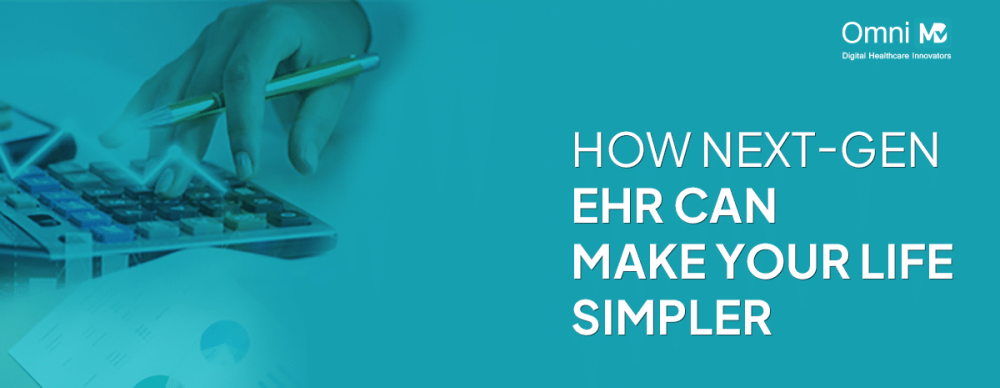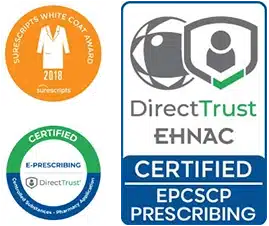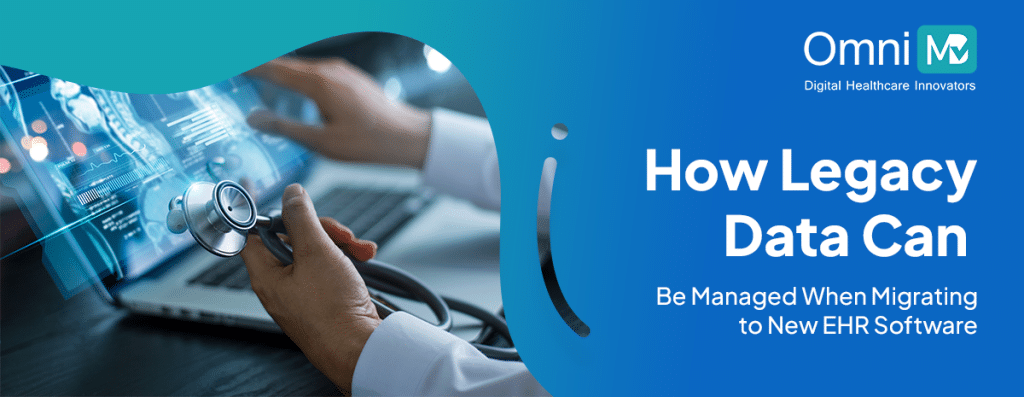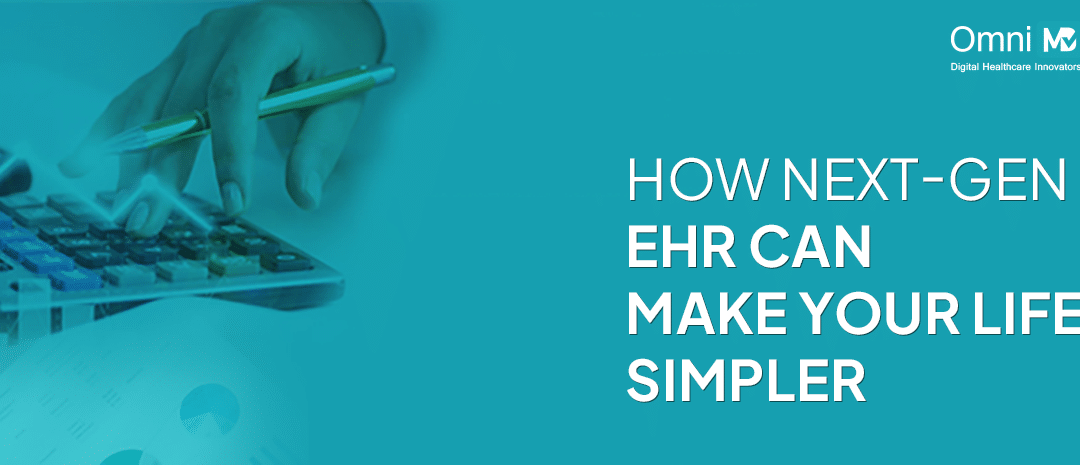
How Next-GEN EHR Can Make Your Life Simpler
Change is constant. This applies to the field of patient data whether it is handled by individual doctors or by large hospitals and healthcare services providers across the country. From storing patient records in Excel sheets to database systems the world of patient data records has progressed to electronic health records. Even within this we have different types of electronic health record systems such as one hosted by individual physicians known as electronic medical records, remotely hosted electronic health record software and remote systems accessible to a large number of users.
However, what distinguishes these existing electronic health record systems is that they are passive or historical, simply maintaining a record of the patient’s illnesses, diagnostics and treatments at one or more facilities. This is good but proves to be a stumbling block when there are major issues like a pandemic where other parameters come into play such as preventive and proactive measures to identify vulnerable populations, keep track of infected individuals, their recovery rate, their specific conditions and reactions to treatment and data to take steps to prevent spread. There are blocks such as high cost, excessive documentation and lack of user friendliness in currently existing EHR systems. Most of these focused more on the administrative and financial side with the medical side added on as an afterthought. These systems also imposed additional work burden on personnel. The Covid pandemic worldwide brought out these deficiencies and paved the way to introduce changes to electronic health record systems for the future.
It is time for a change to the electronic health record systems and the way they are implemented and used.
In fact, according to EHR Intelligence, the use of EHR in July, 2020 increased by 2.06% compared to the pre-pandemic times.
Future developments in electronic health record software could and should include various advancements as detailed below.
Structural technical underpinnings
Future EHR software applications should have solid technical underpinnings to incorporate latest advances in IT technologies such as:
Algorithms need to be incorporated into medical EHR software to combine various case conditions, interconnected health issues, treatments based on patients’ individual situations, flexibility for healthcare workers to step in as may be needed according to the situation but do it automatically and speedily with minimal human intervention.
Such futuristic electronic health record ehr solutions would also have advanced decision support and workflow logic to remind team members through a variety of channels about patients, available plans and facilities for fast action.
The future medical ehr software will be able to fluidly deliver analytics for individuals and for populations within specific geographic regions and to have predictive capabilities as regards spread of a disease.
Intelligence At The Core
As they stand current EHR software applications are focused on maintaining past data about patients, their activities and particularly the revenues side. Incorporation of intelligence into such EHR systems does not pose a big challenge given the voluminous amounts of data sets that can be used for machine learning to facilitate predictive capabilities. It could, for example, analyze variables such as whether a patient is following a treatment routine, their deviations and possible outcomes and suggest possible steps to remedy this kind of situation. Importantly, futuristic electronic health record systems should be able to analyze and deliver suggestions to busy doctors so that they can put such suggestions into practice instead of wasting time in thinking about individual problems. Indirectly, analyzing patients in bulk who are infected with a specific disease could show up peculiar conditions that would be missed by most doctors treating individual patients. Real time big data analytics needs to become part of the overall electronic health record system to be used worldwide or countrywide, similar to the airlines reservation system in which all stake holders can get information in real time. This also has implications in disease detection, spread and preventative measures.
The Question of Access
Though electronic health records are available for sharing by healthcare service providers, access still remains limited. The issue of accessibility needs to be addressed considering that 66% of users search for information on the internet and 88% of appointments is booked via phone or other digital means. Electronic health record systems can take a leaf out of how businesses manage their communications and manage customers by providing remote multi-channel access across various devices with fluid crossover from desktops to mobiles as and when needed, both for patients and doctors.
Technologies to incorporate are natural language processing, voice recognition and IoT to further broaden the scope of accessibility.
The question of accessibility also leads to standardization and uniformity of electronic health record systems as well as data protocols for glitch-free use and operation.
Accessibility also raises issues of security that can be addressed using blockchain technology for validation, data security, claims, authentication and prevention of insurance frauds.
Multiplicity Of Plans
Health care services would vastly improve and patients would benefit if future electronic health record software were to incorporate the facility to enable providers to prepare plans for various contingencies.
Population Health Management
Instead of considering a single patient, the future electronic health record systems can help providers to set up plans for populations based on a set of parameters relating to disease, age, gender and economic drivers. Data can be gathered through various devices like smart watches and IoT devices and providers can take inputs to devise flexible plans.
Health Information Exchange
Interoperability is a part of EHR but needs to be improved to give immediate access to any health care services provider, especially in cases of emergency.
Training
The more sophisticated a medical health record solution becomes in the future the more complex it is likely to be and it will likely involve a learning curve. Service providers in the healthcare segment would work alongside solution providers to give training to bring users up to speed on 5G technologies, AI’s benefits, IoT and wearables and how to use the system to derive the maximum benefit. After all, sophisticated electronic health record software is like a sophisticated car or aircraft—one must know how to use it or it will be practically of little use. It pays to join hands with the right vendor who considers all these aspects when you decide to go for medical ehr software.
Enhance patient engagement, improve accessibility, and leverage standardized processes. Get medical EHR software now!

